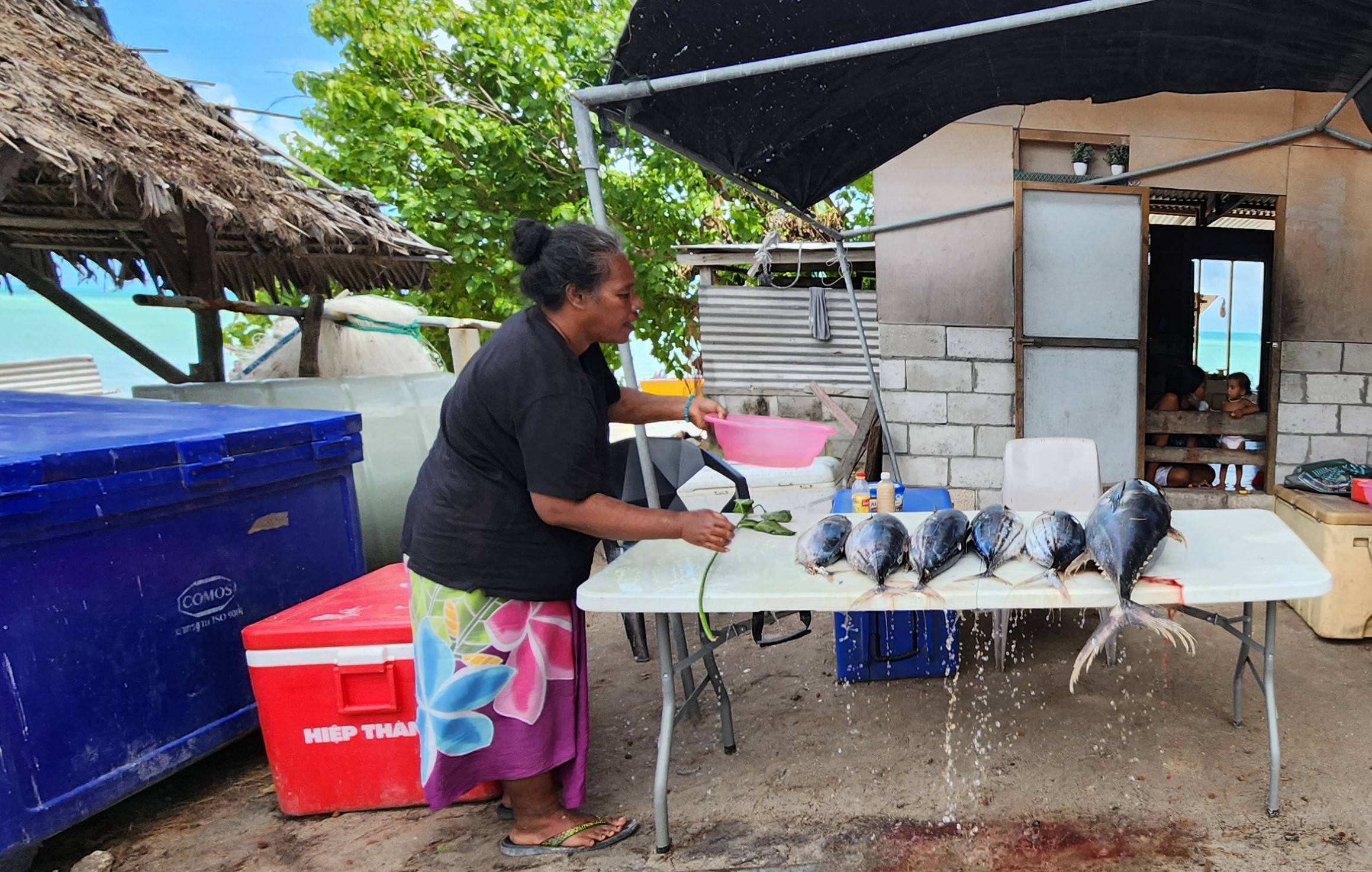Related News

In the coastal communities of Kiribati, where daily life rhythmically mirrors the ebb and flow of the Pacific Ocean, a significant collaborative effort emerged to reconnect and reinvigorate the health benefits of fresh fish consumption.
In November 2023, Brandon Tabane, Senior Fisheries Officer within the Kiribati Ministry of Fisheries and Marine Resources Development (MFMRD) became part of the first Kiribati cohort to graduate with a micro qualification in Maintaining Seafood Safety and Quality. This was made possible through the European Union and Government of Sweden funded USP Pacific European Union Marine Partnership (PEUMP) project. This USP PEUMP training aims to upskill learners to improve seafood safety and quality from ‘hook to plate’.
Mr Tabane is also the team leader of the Fish for Life Campaign, a project under MFMRD aiming to spotlight the nutritional advantages of fish consumption, prioritizing health impacts over livelihood benefits.
In true definition of synergies and alliances, aspects of seafood safety and quality will be incorporated into the Fish for Life campaign.
“This additional knowledge and skills aimed to enhance the sustainability and safety of fishery practices, adding value to the initiative.” said Brandon Tamane. “That is one of the main reasons why I applied to be part of the micro-qualification training on seafood safety and quality.”
“It is indeed encouraging to see that our USP PEUMP funded micro qualification training will complement the Fish for Life campaign by helping one understand how to process fresh fish to maintain its quality and nutritional value,” said Lavenie Tawake, USP PEUMP project Team Leader. “The PEUMP project training programs motivate fishers and their communities to maintain the quality of fish and nutritional value of fresh fish while improving their livelihood opportunities. Such positive impacts, collaborations, and synergies are critical and essential to addressing SDG issues. The convergence of efforts toward a common goal underscores the significance of collective action in shaping a sustainable future for our marine resources and the communities that depend on them.”
The campaign united the expertise of the University of Wollongong (UoW) in Australia, the Kiribati Ministry of Fisheries and Marine Resources Development (MFMRD), the Ministry of Health (MoH), and the Ministry of Education (MoE). Implementation is across this island nation and focuses on fish nutrition awareness to the community and school engagement.
With the micro qualification in maintaining seafood safety and quality successfully completed in November 2023, and the Fish for Life Campaign scheduled to launch in the first quarter of 2024, sustaining marine resources and nourishing lives became a collective endeavor, demonstrating the power of collaboration among different sectors and organizations in preserving and invigorating the intertwined connection between Pacific islanders, sustainable marine resources, nutrition security and improving sustainable livelihoods.
USP is one of four key implementing partners of the PEUMP Programme, a EUR 45 million program which promotes sustainable management and sound ocean governance for food security and economic growth while addressing climate change resilience and conservation of marine biodiversity.
It follows a comprehensive approach, integrating issues related to ocean fisheries, coastal fisheries, community development, marine conservation and capacity building under one single regional action. The PEUMP programme is housed within the Institute of Marine Resources within the School of Agriculture, Geography, Environment, Ocean and Natural Sciences (SAGEONS).